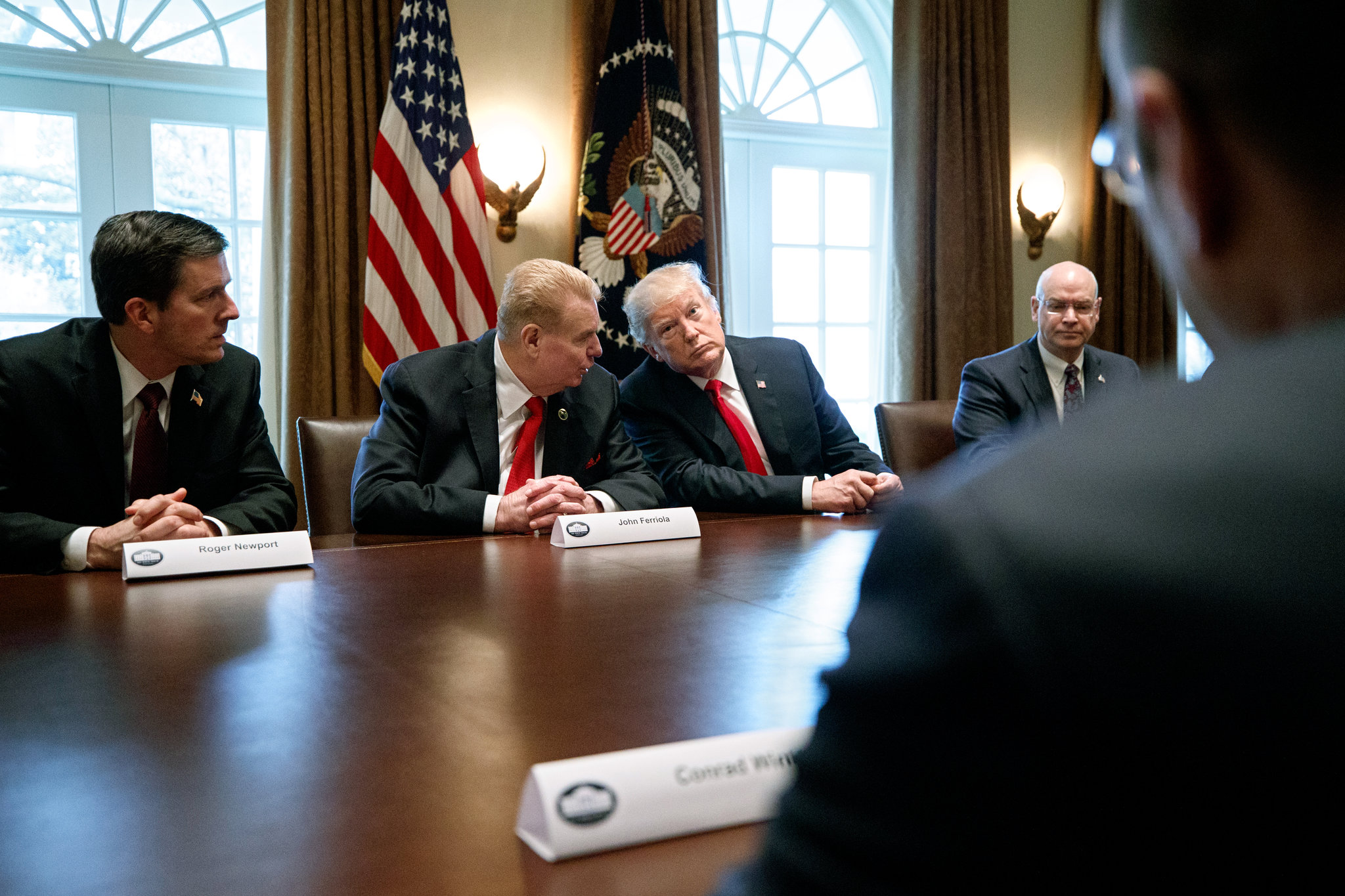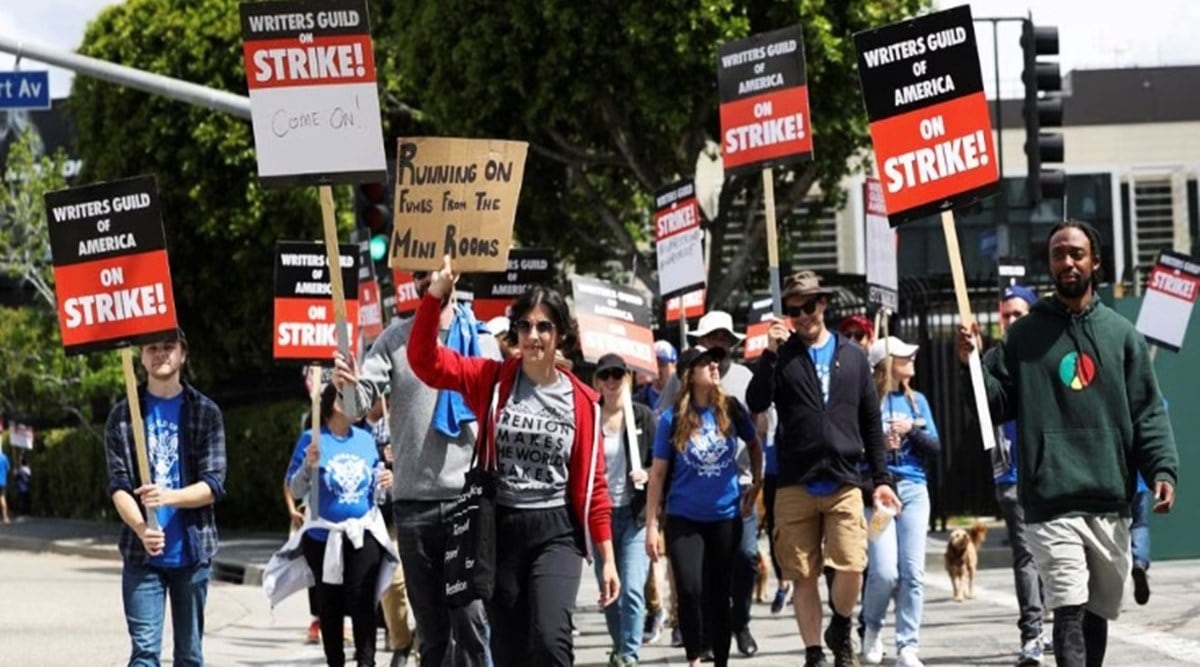Evaluating The Economic Risks Of Trump's Trade Offensive On American Financial Leadership

Table of Contents
Increased Trade Tensions and Global Uncertainty
Trump's approach to trade, characterized by the imposition of tariffs and the initiation of trade wars, dramatically increased global uncertainty. This uncertainty significantly impacted investor confidence, disrupting established capital flows and creating volatility across financial markets.
- Increased volatility in financial markets: The unpredictability of US trade policy led to sharp fluctuations in stock markets worldwide, as investors struggled to assess the risks and opportunities in a rapidly changing global landscape. The imposition of tariffs on goods from China, for instance, led to immediate market reactions, reflecting the interconnectedness of global finance.
- Reduced foreign direct investment in the US: Uncertainty breeds caution. The threat of escalating trade disputes discouraged foreign companies from investing in the US, fearing potential future trade restrictions and disruptions to their supply chains. Data from the Bureau of Economic Analysis showed a decline in FDI during periods of heightened trade tensions.
- Damage to supply chains and increased costs for businesses: Tariffs disrupted established global supply chains, forcing businesses to find alternative sources of materials and goods, often at increased costs. This led to higher prices for consumers and reduced competitiveness for American companies.
- Negative impact on consumer confidence and spending: The uncertainty and higher prices resulting from trade disputes dampened consumer confidence, leading to reduced spending and slower economic growth. Consumer sentiment surveys reflected a decline during periods of heightened trade conflict.
Damage to International Alliances and Global Cooperation
Trump's unilateral trade actions significantly eroded trust and cooperation among nations. His administration’s disregard for multilateral trade agreements undermined the very institutions designed to ensure global economic stability and predictability.
- Weakening of international organizations like the WTO: The US's actions, including its refusal to participate fully in WTO dispute settlement mechanisms, weakened the effectiveness of the organization and cast doubt on the future of multilateral trade governance.
- Strained relationships with key trading partners: The imposition of tariffs and the initiation of trade wars damaged relationships with crucial economic partners, such as China, the European Union, and Canada, creating long-lasting diplomatic and economic tensions.
- Increased protectionism globally, leading to retaliatory tariffs: Trump's protectionist policies triggered retaliatory measures from other countries, leading to a cycle of escalating tariffs and trade restrictions that harmed global commerce.
- Reduced predictability and transparency in international trade: The unpredictable nature of Trump's trade policies created a climate of uncertainty, making it difficult for businesses to plan for the future and hindering investment and growth. This lack of transparency further undermined American financial leadership. The long-term implications for American influence in global financial institutions, such as the IMF and World Bank, remain a significant concern.
Impact on Specific Sectors of the American Economy
The impact of Trump's trade policies was not uniform across all sectors of the American economy. Certain industries, such as agriculture and manufacturing, were disproportionately affected, experiencing job losses, bankruptcies, and economic hardship.
- Analysis of the impact on specific industries using data and case studies: The agricultural sector, for example, suffered greatly from retaliatory tariffs imposed by China, leading to significant losses for farmers and impacting rural economies. Manufacturing faced challenges due to increased input costs and reduced competitiveness.
- Discussion of the winners and losers from the trade policies: While some sectors might have experienced short-term gains from protectionist measures, the overall effect was largely negative for the American economy, with far more losers than winners.
- Examination of the long-term competitiveness of affected industries: The trade disruptions weakened the long-term competitiveness of certain industries, potentially hindering their ability to innovate and compete in the global market.
- The role of government support and subsidies in mitigating the negative impacts: Government attempts to mitigate the negative impacts through subsidies and support programs proved insufficient to offset the overall damage caused by the trade policies.
The Long-Term Implications for American Financial Leadership
Trump's trade offensive has left a lasting mark on the US's global economic standing. The long-term consequences for the US dollar's dominance, the stability of American financial markets, and the country's overall economic strength remain a matter of significant concern.
- Loss of global economic influence and trust: The unpredictable nature of US trade policy under Trump diminished America’s standing as a reliable and trustworthy global economic partner, undermining its influence in international organizations and negotiations.
- Potential for decline in the US dollar's reserve currency status: The ongoing uncertainty surrounding US economic policy could potentially erode the US dollar's status as the world's primary reserve currency, a position that has been crucial to American financial power.
- Increased competition from emerging economies: The disruption caused by Trump's trade policies provided opportunities for emerging economies, such as China, to expand their economic influence and challenge America's dominance.
- The need for a reassessment of US trade and economic policies: The experience of the Trump administration's trade policies highlights the urgent need for a re-evaluation of US trade and economic strategies, emphasizing a return to international cooperation and a more predictable and stable approach. The potential for future administrations to reverse the damage and restore American financial leadership remains a crucial challenge.
Re-evaluating the Economic Risks of Trump's Trade Offensive
In conclusion, the economic risks of Trump's trade offensive on American financial leadership were substantial and multifaceted. Increased global uncertainty, damaged international alliances, negative impacts on specific economic sectors, and long-term implications for US economic dominance all underscore the significant challenges resulting from this period of protectionist trade policies. The destabilizing effects of these policies highlight the need for a more nuanced and collaborative approach to international trade. Further research into the specific impacts on different industries and the long-term consequences for global economic stability is crucial. We must critically examine these impacts to ensure the future strength of the American economy and its leadership role in the global financial system. Engage in informed discussions about the continuing ramifications of the Economic Risks of Trump's Trade Offensive on American Financial Leadership and consult resources such as the Congressional Research Service reports and publications from the Peterson Institute for International Economics for further insights.

Featured Posts
-
 Selling Sunset Star Calls Out La Landlords For Price Gouging After Fires
Apr 22, 2025
Selling Sunset Star Calls Out La Landlords For Price Gouging After Fires
Apr 22, 2025 -
 1 Billion Funding Cut Trump Administrations Latest Action Against Harvard
Apr 22, 2025
1 Billion Funding Cut Trump Administrations Latest Action Against Harvard
Apr 22, 2025 -
 January 6th And The Epps Fox News Defamation Case A Deep Dive
Apr 22, 2025
January 6th And The Epps Fox News Defamation Case A Deep Dive
Apr 22, 2025 -
 Los Angeles Palisades Fire A List Of Celebrities Whose Homes Were Damaged Or Destroyed
Apr 22, 2025
Los Angeles Palisades Fire A List Of Celebrities Whose Homes Were Damaged Or Destroyed
Apr 22, 2025 -
 Hollywood Strike Actors Join Writers Bringing Production To A Halt
Apr 22, 2025
Hollywood Strike Actors Join Writers Bringing Production To A Halt
Apr 22, 2025
